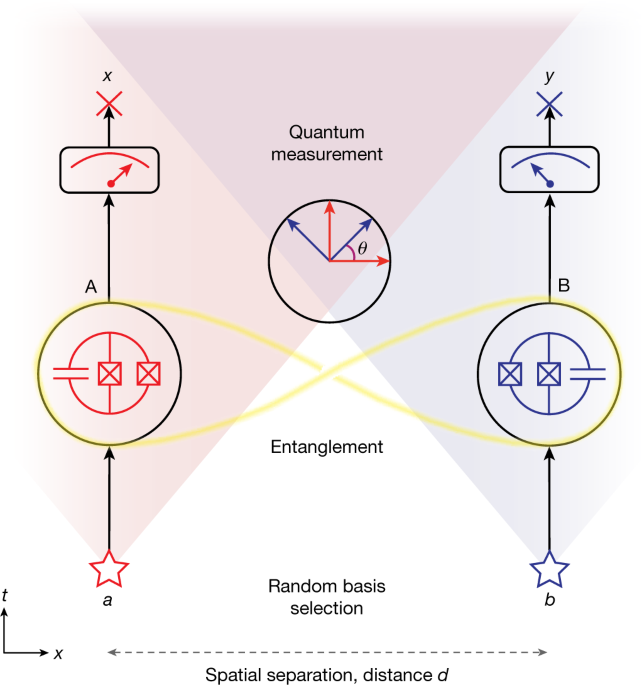- Bell State
- Posts
- Google Supremacy, Iran Exposed, and Germany's Debut
Google Supremacy, Iran Exposed, and Germany's Debut
Quantum Intelligence 🤖
Welcome to The Bell State.

Your weekly roundup of the biggest breakthroughs in Quantum Computing.
In today’s briefing:

Google has achieved quantum supremacy (again) with its new and improved quantum computer, and it is performing calculations that would take the best supercomputers 47 years (!!!) to complete. Google made a similar claim in 2019 about their Sycamore processor, but this latest Sycamore model runs on 70 qubits, an improvement on the previous version with 53 qubits.
**Want to know more about qubits? Check out our recent Twitter thread here!

2019 Sycamore Model: 53 Qubits
Iran recently made headlines with its claim of successfully developing and deploying quantum computing products for military purposes. However, it’s been revealed that the gold-plaqued board showcased was actually an off-the-shelf FPGA (Field-Programmable Gate Array) development board (available on Amazon). Iran's research vice chancellor for Imam Khomeini University admitted that there was no actual quantum processing involved in their announcement and blamed the false perception on the country's media.

FPGA found on Amazon (available for Prime Overnight!)
Frankfurt-based quantum computer software developer Quantagonia raised €4.3 million in a seed funding round led by Tensor Ventures. Quantagonia is focused on bridging the gap between classical and quantum computing through its Hybrid Quantum Platform. The CEO and co-founder of Quantagonia emphasizes the importance of Germany and Europe taking action now to become "quantum ready" and not miss out on the advantages that quantum computing will offer in the future.
Google recently published a paper discussing the challenges and trade-offs involved in error-corrected quantum computing. The study focuses on understanding the computational cost of quantum processing experiments, considering noise and the choice of observable. The authors generalize a framework used in Random Circuit Sampling (RCS) experiments to estimate the computational cost. They also explore the relationship between gate error, fidelity of observables, and computational cost in the context of quantum information scrambling. The findings highlight the exponential decrease in fidelity with the effective quantum volume and the corresponding increase in classical computational cost with the effective area.

Layout of 127 Qubits

follow @QuantumMemeing on Twitter for all your quantum comedy!
(also follow @thebellstate <3)
when you spend 5 years doing a quantum PhD and the technology is still 15 years away with limited use-cases
— Quantum Computing Memes for QMA-Complete Teens (@QuantumMemeing)
3:10 PM • May 30, 2023
sci-fi is when you have a quantum computer, fantasy is when the quantum computer is only 15 years away.
— Quantum Computing Memes for QMA-Complete Teens (@QuantumMemeing)
8:09 AM • Sep 29, 2022
📚 Bell’s Bookmarks 📚
- articles & videos that should be on your radar -
Thanks for reading!! If you liked this and want more, make sure to subscribe below and follow us on Twitter.
🔔 Chiming out,
Bell Boy





